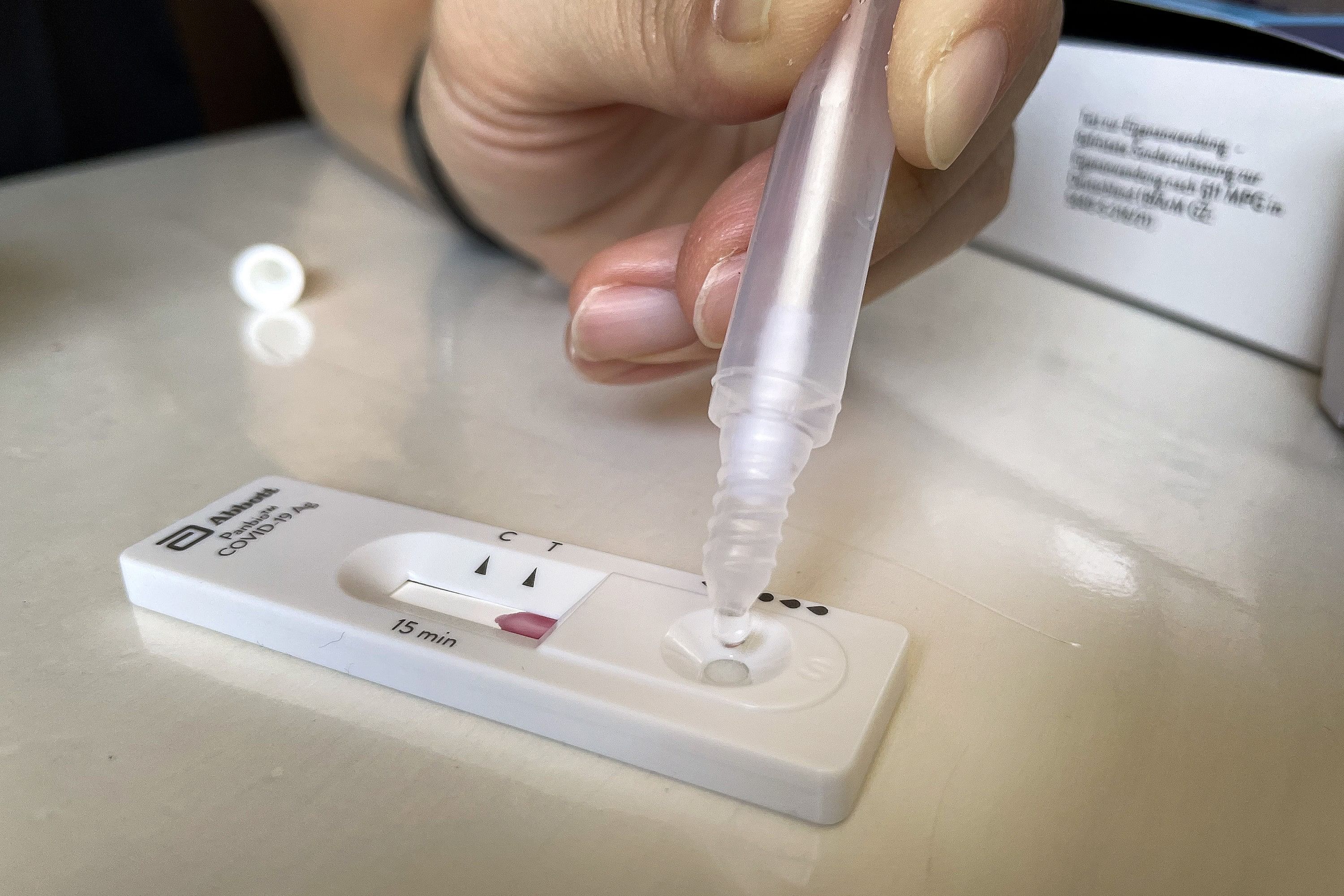Covid-19 has placed diagnostic tools at the forefront, but more must be done: Kenneth Mak
Sign up now: Get ST's newsletters delivered to your inbox

Diagnostic technologies like rapid test kits have been used during the pandemic to monitor for infections.
PHOTO: ST FILE
SINGAPORE - The Covid-19 pandemic was a "burning platform" that accelerated new diagnostic technologies at an unprecedented speed - with novel test kits and antigen rapid tests developed in less than a year, noted Singapore's director of medical services Kenneth Mak on Wednesday (Feb 16).
The field of diagnostics has come to the forefront with the pandemic, with many using rapid test kits to monitor themselves for infections, for instance.
"Still, there remains huge potential in how we can leverage technology to set new benchmarks of excellence in diagnostics for accuracy and efficiency, and ultimately to improve care outcomes," added Associate Professor Mak in a pre-recorded speech.
His speech was telecast at the inaugural virtual dialogue on accelerating the diagnostics field and its applications in Asia, spearheaded by the SingHealth Duke-NUS Global Health Institute.
The virtual discussion, which involved close to 300 healthcare leaders and diagnostics specialists in Singapore and the region, was born from a global report which found that 47 per cent of the world's population have little or no access to diagnostic services.
Diagnostics refer to techniques and tools to diagnose diseases earlier and, sometimes, faster.
The report published last October by the Lancet Commission also found that 35 per cent to 62 per cent of the global population with illnesses such as diabetes, hypertension, human immunodeficiency virus and tuberculosis remain undiagnosed.
The SingHealth Duke-NUS Global Health Institute said in a statement on Wednesday: "The lack of access to diagnostics results in a delayed detection of treatable diseases, and subsequently, poorer health outcomes and increased healthcare costs."
The chair of the Lancet Commission on Diagnostics, Dr Kenneth Fleming, said the field of diagnostics, globally, is underfunded because its importance is underappreciated.
"Patients in much of the world (are) being treated for diseases without access to the necessary diagnostic tests and services," he observed.
In his recorded address, Prof Mak covered Singapore's diagnostics landscape, which includes access to services, affordability, and safety and quality of those services.
He acknowledged that new and innovative diagnostic methods should remain affordable and sustainable. In 2015, a national health technology assessment agency was set up to evaluate the clinical and cost effectiveness of health technologies, and to support better-informed decisions on usage and subsidies.
Beyond improving diagnostics capabilities through new technologies and innovations, Prof Mak pointed out that Singapore and the region should embark on more research into diagnostics.
This is because there are currently more global studies in this area for the Western population, he explained.
"With Asians having different genetic make-up and demographics, specific studies and discussions on the application of diagnostics for our region are needful.
"Moreover, Singapore's heterogeneous and racially diverse population makes us a great test bed for diagnostic research and capability testing," he added.
Agreeing, Dr Zhou Lihan, co-founder of local biotech company Mirxes, said: “For diagnostic innovations to gain wider adoption, we need to generate large scale evidence to demonstrate clinical utility in the Asian population, to develop appropriate clinical guidelines.”
Mirxes developed the world’s first microRNA blood test to detect gastric cancer early. MicroRNA refers to the smallest pieces of genetic material.
Dr Zhou was not involved in the virtual discussion on Wednesday.
The discussion focused on issues such as expanding the number of healthcare workers in the diagnostics-related departments and upskilling existing workers, and having regulations to oversee the quality and safety of diagnostic techniques.
The dialogue was also organised in partnership with the Academy of Medicine Singapore and the Lancet Commission.
Dr Zhou said that the future of diagnostics in Singapore will include DNA- and RNA- based diagnostic tests that will enable early detection of diseases and timely treatment.
More tests would also be available at the community level, to increase access to diagnoses, he added.


